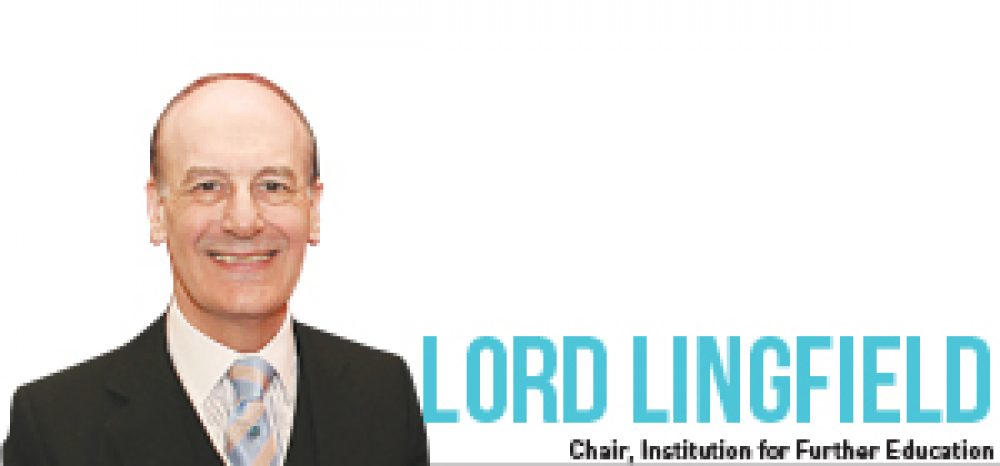Chartered Status has been on the cards for FE for more than a year with Skills Minister Matthew Hancock having appointed Lord Lingfield to head a panel that would dish out the award. The Tory peer provides his first update on Chartered Status progress.
In March 2013 I was asked by Skills Minister Matthew Hancock to take on the task of creating a new royal-chartered institution for FE.
I accepted with pleasure, as the establishment of such a body had been advocated by myself and my colleagues [David Sherlock CBE, Dawn Ward OBE and Daniel Wright] who wrote the 2012 report professionalism in further education for the Department for Business, Innovation and Skills (BIS).
During the past two years I have had the privilege of visiting many excellent FE providers. One of the ways in which the government hopes to improve quality across the whole of the sector is gradually to identify the very best among them, to give the professionals who run them, and those who govern them, as much autonomy and freedom from government control as possible in order to allow them to flourish and spread best practice throughout the country.
There are around 1,100 providers within FE serving more than four million learners.
One of their strengths is that they are a ‘mixed economy’, dealing with FE, full cost work for UK and foreign customers, and, in the case of most colleges, higher education as well.
As Ofsted inspects only part of their work and the Quality Assurance Agency only their degree courses, there is, at the moment, no single quality assurance organisation for them, and we hope that the royal-chartered institution for FE will endeavour to be that.
David Sherlock and I began our work last year with the creation of a not-for-profit company limited by guarantee.
It is this body which has petitioned The Queen via the Privy Council for a royal charter.
The acquisition of a charter is not a swift process and many criteria have to be fulfilled before the Great Seal is added to it, bringing it officially into being.
We expect negotiations to be completed within months.
The acquisition of a charter is not a swift process and many criteria have to be fulfilled before the Great Seal is added to it, bringing it officially into being
In the meantime we have had many useful discussions with BIS officials, we have prepared business plans and received seed corn funding and recently acquired the lease of premises in Victoria Street, in Westminster.
Earlier this year we appointed Ed Quilty, a senior civil servant on secondment, as our chief executive and since then his task has been to create and furnish our new office and to move the project forward.
I know that he has already met many senior people within the sector and looks forward to further discussions.
In January, I wrote to around 80 large and small providers, both public and private, setting out our vision and consulting them on possible subscription fees.
I was very heartened by the positive response. There were clearly many leaders within the sector who saw a need for such a new body and who felt that it could perform the same worthwhile task as other royal-chartered institutions.
We have decided to enlist the help of a small group chosen from among the respondents to help to develop and refine the criteria for admission to membership.
It is our intention that these providers should be ‘guinea pig’ applicants themselves and form the body of founder members of the institution.
Like other chartered institutions it must, as it develops, be governed by people drawn from among the professionals in the sector themselves.
The criteria for admission will encompass very high standards. Success for the new institution will come when all this country’s providers are able to meet them and be welcomed into membership.
I very much hope that the institution’s armorial device, which members will be entitled to display, and which is already informally approved by Garter King of Arms, will be recognised as a mark of the highest quality for students and employees alike.
The new institution will offer its members collectively a status akin to that which universities have, and give them the prestige and recognition which has long been the hallmark of royal chartered bodies in this country.
Lord Lingfield, chair,
Institution for Further Education









Your thoughts